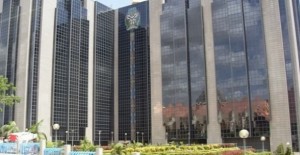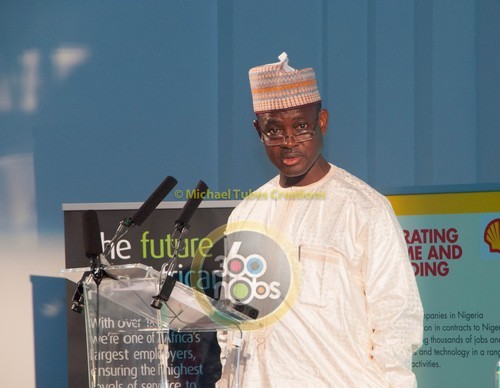CBN Moves To Unlock Credit To Economy, Pegs Banks’ Placements In SDF

Worried by the preference of banks to keep their idle funds of over N300 billion with the Central Bank of Nigeria’s (CBN) Standing Deposit Facility, (SDF), rather than lending to the economy, the apex bank has placed a daily maximum limit of N7.5 billion placement, to be eligible for the 10 percent interest rate, per annum.
The discount window is an instrument of monetary policy which allows banks to borrow money from the CBN, usually on a short-term basis, to meet temporary shortages of liquidity caused by internal or external disruptions. The aim is to manage unexpected payment shocks which may arise due to technical problems in the bank’s own systems, or in the market-wide payments and settlement infrastructure.
The SDF usually attracts an interest rate of the CBN’s monetary policy rate, (MPR), the anchor rate at which it borrows banks currently at 12 percent minus 200 basis points, a rate considered by analysts as mouth-watering that is encouraging banks to be averse to lending to the economy.
The development is coming as the overnight and Open Buy-Back, (OBB), an instrument for short term funds, rates are now lower than the MPR, making analysts to question the efficacy of the 12 percent MPR.
For instance, as at yesterday, overnight borrowing was 10.58 percent, exchange rate at interbank was N170/$, while OBB as at Tuesday was 10.25 percent.
The implication of rates lower than MPR, according to them is that the CBN’s reference rate has lost touch with the realities on ground, due to excess liquidity in the system that is impacting negatively through continued pressure on the naira.
Over N300bn in loanable funds was hanging, as the CBN offers juicy rates to banks, highlighting analysts’ calls for review of interest rate to banks.
Part of the circular from the CBN last week, said, “It has been observed that banks and discount houses have preferences for keeping their idle balances at the Central Bank in the standing Deposit Facility (SDF) thereby constraining the process of financial intermediation.
“In order to encourage the banks to increase lending to the productive sector of the economy, the guidelines for the operations of SDF is hereby reviewed as follows: The remunerable daily placements by banks and discount houses shall not exceed N7.5billion. This shall be remunerated at the SDF rate of 10 percent per annum.
“Any deposit by a bank or discount house in excess of the N7.5billion shall not be remunerated.”
Suleiman Barau, a member of Monetary Policy Committee at the last meeting said, “As I have always said, recent research studies initiated by MPC have proven lack of a clear relationship between MPR and credit growth in Nigeria.
“Desirable as it may be to some, there is no evidence to show that a reduction in MPR will be accompanied by any significant growth in private sector credit and real sector growth, at least in the short -run. This confirms our earlier position that what is needed to spur radical growth in credit to the private sector is the much talked about structural reforms. Credit will subsequently flow into the real sector.”
Razia Khan, analyst with Standard Chatered Bank, London said, “Firms complain about the accessibility of credit, rather than affordability. So their complaint is more that they can’t get loans, rather than the rate at which the loans are extended to them.
“It’s not an argument against tight monetary policy. It does suggest that a greater emphasis on inclusion is needed.”
Bismarck Rewane, managing director of Financial Derivatives Company, in the latest bi-monthly Economic Bulletin, said, “Average interbank rate of OBB, Overnight and 30-day tenors was 11.29% p.a., lower than 12.04% p.a. in the corresponding period in September.
“OBB and O/N closed at 10.43% p.a. and 10.63% p.a. as against 11.75% p.a. and 12.04% p.a. respectively in September.”
Standard Chartered bank Business Sentiment Index released recently said that Credit costs eased further, but credit availability worsened.
“While the Central Bank of Nigeria (CBN) has focused its efforts on containing any substantial rise in interest rates paid, focusing on the affordability of financing for companies, our survey results suggest that there may also be a need for some focus on credit accessibility for Nigerian companies.
“The Nigerian economy may be tested by weaker oil earnings; improved credit accessibility may be especially important to the effort to preserve non-oil growth.”







